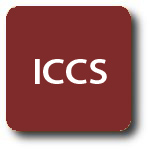CHICAGO, IL USA (UroToday.com) - This poster was on an electronic diary developed in conjunction with the University of Pittsburgh, with funding from an SBIR grant from the National Institute on Aging. The authors rightly state that incontinence is a major problem. Additionally, it is difficult for clinicians to determine the precise extent of a patient's incontinence because it is difficult to measure, and treatment outcomes may be too subtle for patients and clinicians to perceive the effects. So patients often cannot adequately relay to their providers if symptoms are better or worse, and providers cannot tell whether prescribed interventions are having any effect. Current methods for tracking progress through bladder diaries are fairly primitive as there is no way to measure volume of urine loss, they can be inconvenient to use, and providers have a difficult time interpreting the results as analysis tools are not available.
So the goal of the “iDry” product was to create, and make widely available, a free software tool that will help providers measure their patients’ progress and allow patients to see progress that may otherwise be too subtle to notice (e.g. 10% per month reduction of urine loss). These researchers conducted a small-scale field trial to test and measure the effectiveness of iDry for UI management. They recruited 9 subjects from the Department of Urology at the University of Pittsburgh and had them use the iDry for 3-week trials. The subjects were post prostate surgery male patients (ages 56 to 70) with an average UI history of 7.4 months and an average use of 5 absorbent incontinence pads per day. This was a very select population and may be why they were successful in its use as most of the subjects had experience with iPhones and/or computers.
In addition, the developers also did some testing by soliciting people from online forums, specifically www.healingwell.org, and a prostate cancer forum. However, this data was less controlled in terms of users’ profiles; length of usage data was incomplete. The UI questionnaire used was a standard self-assessment of UI bother.
The iDry mobile software appears to have many helpful features: it has reminders that are automatic (e.g. “doing your Kegels”), and can set frequency, start time, end time, and active days. The user can select from a list of 48 of the most common interventions or they can define their own. The iDry reports percentage improvement associated with each active intervention, and the user can seek more information (e.g., caffeine control). The software can report pad changes with date and amount of urine loss. A database of over 200 of the most common incontinence products is provided. It can also track progress by volume, showing total urine loss per day, week, and month. Many charts are available.
The conclusion of the initial usage trial was that it can be a very good application with positive feedback from test subjects regarding the features, benefits, UI management, and the possible use of the data for research. iDry has been available since mid-November 2012, with a free download, and a cost of $4.99 for premium features which were not described.
The author of this poster, Jeff Pepper, is the owner of the company that developed the product.
Presented by Jeff Pepper and Xiao Hui Wang at the Simon Foundation for Continence's Innovating for Continence Conference Series - April 12 - 13, 2013 - Chicago, Illinois USA
Touchtown, Inc.
Reported for UroToday.com by Diane K. Newman, DNP, ANP-BC, FAAN
About the Conference Series
 The Innovating for Continence Conference Series is a unique, international, biennial conference for engineers, physicians, nurses, people with incontinence and their caregivers, academics, industry executives, and those with a passion for increased development of creative and efficacious products for the management of incontinence.
The Innovating for Continence Conference Series is a unique, international, biennial conference for engineers, physicians, nurses, people with incontinence and their caregivers, academics, industry executives, and those with a passion for increased development of creative and efficacious products for the management of incontinence.
The multi-disciplinary meetings attract speakers from a wide range of disciplines and is organized and hosted by The Simon Foundation for Continence (Chicago, IL USA). It is made possible through generous support from individual and industry sponsors.
Professor Alan Cottenden is the ongoing chair for the conference series. He is Professor of Incontinence Technology at University College London, England. Professor Cottenden is the Chair of the Organizing Committee for the biennial conference "Incontinence: The Engineering Challenge" hosted by the UK Institution of Mechanical Engineers along with the committee on Management Using Continence Products of the International Consultation on Incontinence (ICI). He has been involved in continence technology for almost 30 years, working on clinical and basic science aspects as well as product development and international standards work (ISO).



